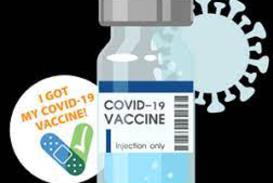Healthcare Medical Pharmaceutical Directory.com
Pharmacy Benefit Managers - PBMs
Business Trends
- The PBM sector is largely dominated by CVS / Aetna, Cigna / ExpressRx, United Healthcare / OptumRx, Anthem BCBS / Ingenio Rx and AllianceRx Walgreens Prime
- 2021 reveals Amazon Pharmacy and PillPack's strategy as consolidation continues in the PBM sector
- Scroll down for insights on the competitive and complex pharmacy benefit management healthcare business sector
... Pharmacy Benefit Managers ( PBMs) are covered in this profile; scroll down for market access strategy presentations and articles plus a list of the largest PBMs ...
Pharmacy Benefit Manager ( PBM ) Market Sector Overview
The PBM sector is complex, competitive and continues to evolve. It's a diverse clinical and commercial environment of healthcare and pharmacy benefits, MCOs, commercial insurance carriers, clinical services, payers, consumers, employers, employee benefit consulting firms, prescribers (nurse practitioners, doctors), retail, mail order and specialty pharmacies and other stakeholders. The sector routinely attracts scrutiny from various regulatory agencies, political circles and consumer watchdog groups. Healthcare reform, ongoing mergers & acquisitions and cost control measures are pivotal contributors to the changing nature of the PBM market and the business models within it.
Basic PBM Functions And Services
PBMs negotiate with pharmaceutical manufacturers to minimize cost increases and assure adequate supply. PBM clients including employer groups and managed care organizations rely on PBMs to deliver high-performance prescription benefit plan management in maximizing generic substitution and preferred brand drug prescribing by clinicians plus enforcement of other formulary or prescription drug plan guidelines and rules.
PBMs are often called on to manage where prescription drugs are dispensed from. Retail pharmacies are preferred for acute care, shorter duration prescriptions; mail order pharmacy is preferred for prescriptions taken for months at a time and referred to as "maintenance medications" such as blood pressure, cholesterol, oral contraceptives and other therapies. Depending on the PBM, their organization can be an independent company or a business unit of a managed care organization ( OptumRx / UnitedHealth Group or RxExpress / Cigna ) or in the case of CVS Health, a business unit of a leading chain drugstore retailer that also happens to own one of the nation's largest insurers, Aetna.
Orphan Drugs, Other Niche Pharmaceutical Therapies In The Specialty Pharmacy Benefit Sector
Niche pharmaceutical products and orphan drugs have been appearing as larger targets on the radar screens of consumers, patients, clinicians, PBMs and healthcare/pharmacy benefit plan stakeholders. These products play important roles in the treatment of rare diseases and conditions. They are frequently associated with what is referred to as "specialty pharmacy" therapies. While there are not many patients requiring these products, costs tend to run high for them as they are very specialized and required a great deal of research and development to be brought to market.
Another hurdle is since the patient count is low, there are fewer opportunities for pharmaceutical manufacturers to achieve ROI. PBMs are responsible for managing these and other high cost, high profile products to verify they are dispensed within the guidelines of pharmacy benefit plans and that patients on them receive appropriate support.
The distinct priority needs for the products is clear coupled with high treatment costs as a combined issue. PBMs are tasked with managing the benefit plans through which the products are covered -sometimes this entails channeling the prescription to be paid through the medical benefit if it can be obtained at a lower cost for patients and plan sponsors. Prior authorizations and other utilization monitoring features or programs are part of the rigor for patients and clinicians as PBMs verify what the clinician is treating the patient for by prescribing a particular drug.
PBM Mergers and Acquisitions
The PBM ("pharmacy benefit manager" or "prescription benefit manager") has historically been rife with mergers and acquisitions; the CVS Health/Aetna deal is a new dimension in the PBM business sector combining chain drugstore, home infusion and PBM businesses with national health (medical and pharmacy benefits) insurance/risk management attributes. Amazon Pharmacy and its PillPack unit represent a new wrinkle in mail order pharmacy and prescription benefit management competition that undoubtedly has big plans for 2021.
CVS Health and Aetna
Launched ahead of schedule in 2019, Anthem and CVS Health announced a PBM collaboration involving Anthem's IngenioRX branded PBM. It will be a full-service prescription benefit manager and enable Anthem to maintain its own prescription drug formulary. CVS Health will benefit through seeing more business in its specialty, mail order and retail pharmacy operations. It is important to remember CVS not only operates its CVS-branded retail pharmacies but also the retail pharmacies in Target stores as well. CVS is also likely to benefit through developing care programs to support Anthem members at its store-based MinuteClinics.
Anthem transitioned its business from Express Scripts (now owned by Cigna) by the end of 2019. In 2016, Walgreens Boots Alliance (WBA) and Prime Therapeutics established a strategic partnership known as AllianceRx Walgreens Prime. It is a combination of specialty pharmacy and mail order pharmacy coupled with pharmacy benefit management services. The organization operates as its business unit with a dedicated management team; the IngenioRx and CVS partnership model has many parallels to this arrangement.
Cigna and Express Scripts
Express Scripts was acquired by Cigna for $54 billion in 2018. In the latter part of 2017, Express Scripts acquired medical benefits manager eviCore for $3.6 billion. In light of Anthem (its largest client) exiting at the end of 2019 due to a breakdown in contract negotiations, Express Scripts needed to take quick action. By purchasing eviCore, they diversified their business outside of pharmacy-only sectors and have additional capabilities to fill the revenue gap left by Anthem. Leading up to their acquisition by Cigna, it was rumored Express Scripts was a takeover target by either Walgreens Boots Alliance or Amazon based on the news of Anthem leaving them and subsequent drop in stock value.
Regulatory Impact On Healthcare Mergers And Acquisitions In The PBM / MCO Sector
Typical of merger and acquisition plans in the healthcare sector and commonly found in the PBM/MCO sector, two mergers involving sizable internal PBMs encountered regulatory resistance.. A proposed Aetna/Humana merger fell through; Aetna owed Humana a $1 billion breakup fee. Anthem sued Cigna as Cigna terminated their merger deal and sought to collect a $1.85 billion break up fee from Anthem. PBM mergers & acquisitions continue to receive higher levels of scrutiny accompanied by proposed legislation to more closely control them.
United Healthcare And Its Optum Business Unit Multiply Growth With Catamaran Buy
While the Express Scripts march of acquisitions over the years culminated into its buyout of Medco (the largest PBM at the time), a series of acquisitions over several years enabled SXC Health Solutions to also grow exponentially and re-brand itself as "Catamaran". Originally a company focused on claims processing technology used throughout the PBM industry, SXC began building its own PBM unit through executing a series of deals which ramped up considerably over 5 years and eventually led to SXC being acquired itself:
- Diplomat, a PBM and specialty pharmacy, 2019
- Genoa Healthcare, a pharmacy chain centered on behavioral healthcare, 2018
- Avella, a specialty pharmacy, 2018
- Helios, a workers compensation PBM, 2016
- Restat, a PBM, in 2013
- HealthTrans, a discount card program/PBM services provider, 2012
- Catalyst Health Solutions, a PBM, 2012 (rebranded company as "Catamaran")
- MedMetrics Health Partners, a PBM, 2011
- PtRx, a PBM/specialty pharmacy, 2011
- MedfusionRx, a specialty pharmacy unit, 2010
- National Medical Health Card Systems, a PBM/specialty pharmacy, 2008
With its healthcare claims processing data attributes as a base, the company invested in itself with PBM administration, mail order and specialty pharmacy capabilities --adding more covered lives and infrastructure with each acquisition. Their ramp up and success caught the attention of United Healthcare who acquired Catamaran in early 2015 for $12.8 billion and combined it with their OptumRx PBM business unit. UHC has substantially deeper PBM capabilities, pharmacy service scope and reach as a result.
A Blue Cross Blue Shield PBM Enterprise: Prime Therapeutics
Prime Therapeutics is a unique organization among PBMs and healthcare organizations. It operates as a PBM partnership among 18 Blue Cross Blue Shield plans. Initially starting as the pharmacy unit of BCBS Minnesota, it has collected additional stakeholders with the latest one being BCBS North Carolina.
By the plans owning Prime Therapeutics, they get direct care/cost insights and integrated prescription plan administration they may not realize through a PBM separate from their organizations. This includes operating two of its mail order pharmacies and a specialty pharmacy unit. Prime Therapeutics can apply leverage when dealing with retail pharmacy providers, pharmaceutical manufacturers (brand and generic) and other vendors. The business model is flexible as it works with customers from their respective BCBS stakeholders as well as employer accounts who are not BCBS plan customers.
AllianceRx Walgreens Prime
The Prime Therapeutics strategic alliance with Walgreens (AllianceRx Walgreens Prime) has the makings of a supreme PBM business model with integrated clinical, financial, formulary management, retail, mail order and specialty pharmacy attributes. Introduced in August of 2016, the companies shared the details of their partnership which combines central specialty pharmacy and mail order service units and introduces a new retail pharmacy network; the "AllianceRx Walgreens Prime" program launched in early 2017. It is still too early to tell what impact there would be on the AllianceRx Walgreens Prime partnership if Walgreens were to go private as rumored in the investor and private equity marketplace.
Specialty pharmacies provide drugs to people with costly, chronic conditions such as rheumatoid arthritis. Walgreens has four central specialty pharmacies that primarily provide mail order services; they will augment the specialty pharmacy capabilities of Prime Therapeutics. The combined entity will be owned by Walgreens and Prime Therapeutics, but will have a separate board and executive team.
Separately, Prime Therapeutics has been growing substantially on the member / customer side as well. They provide the specialty pharmacy benefit management to the Federal Employee Program which added 5.4 million members. They also landed the Regence BCBS pharmacy business which covers members from four states: Idaho, Oregon, Utah and Washington and service over 300,000 BCBS of Rhode Island members.
Costco Quietly Growing Its Healthcare Business
Costco's PBM, Costco Health Services, features retail, mail order and specialty pharmacy services. Its business model is focused on employers within a certain proximity to its stores. One of the primary goals of their healthcare/PBM enterprise is to drive new membership for their stores. With its conventional retail pharmacy network and its own stores (over 770) can service members of their local employer clients across the United States. The Costco PBM, combined with their retail pharmacies, hearing aid and vision departments is a strategic element to not only cultivate more members but also widen revenue streams based on their big-box merchandiser model.
Prior To Its Acquisition Of Aetna, CVS Was Busy With Other Business Building Deals
In December 2017, CVS Health announced it was acquiring Aetna for $69 billion and closed the deal in 2019. The CVS Health/Aetna tandem will have a wide impact across multiple healthcare sectors beginning in 2020, its first full fiscal year as a combined operating organization. The PBM, retail, specialty pharmacy, in-store clinic and managed care health and pharmacy benefit plan juggernaut provide enormous care and cost management attributes for consumers, patients, employers and employee benefit consultants to evaluate. CVS Health had already bulked up its PBM capabilities by acquiring Omnicare, the leading provider of pharmacy services to long term care facilities, in May, 2015. Omnicare has about 13,000 employees, 160 locations in 47 states across the nation.
With the acquisition of Omnicare, CVS Health greatly expanded its prescription business in assisted living, long term care and specialty pharmacy. Given the aging U.S. population, long term care is a growing segment of the health care system. More persons are expected to use assisted living facilities and independent living communities in the coming years, creating a large growth opportunity for companies serving the health care needs of seniors.
PBM Market Access Strategy For Pharmaceutical Manufacturers
Well-orchestrated market access strategies are essential for pharmaceutical manufacturers to be successful within the PBM market sector. In addition to commercial teams of legal, contracting, finance, national account manager and regional account manager staff, teams of clinical liaisons (PharmDs, RNs) need to be in place to support products from a clinical and cost perspective with solid data to validate the attributes of a brand drug's value proposition.
This environment has become more intricate as the largest PBMs are now operating units of managed care companies like UnitedHealth Group's Optum, Cigna's RxExpress, the multiple BCBS stakeholders owning Prime Therapeutics or the Anthem BCBS plans operating IngenioRx as well as Aetna is a business unit of CVS Health. The managed care organization units of these entities are not only looking for low drug costs but also positive patient outcomes, i.e., medications which can prevent a patient/plan member from incurring more serious healthcare events that drive up costs.
PBM Contracting and Promotional Pull-Through Measures
Once the PBM's key decision-makers have approved a product (either newly launched or as part of the contract renewal cycle), a labyrinth of details encompassing formulary tiers, brand and generic competitor preferred status and other plan design features, pull-through measures, rebates, compliance need to be accounted for with exhaustive attention. Being new to a PBM formulary as a newly launched product or as an addition to or displacement of a competing product requires additional steps to communicate with the prescribers, employers and plan members which include plan members (primaries) and their dependents. Gaining co-preferred status as a brand on a PBM formulary is an arduous race to success to gain share against an incumbent product unwilling to relinquish their market share and sales to a newcomer.
... A selection of healthcare marketing strategy presentations, pharmacy and pharmacy benefit management market sector trends ...
... Checkout these links for more details on how CVS Caremark expanded its business model by acquiring Aetna, one of the largest and oldest health insurance / managed care organizations in the United States...
... A list of the largest Prescription Benefit Management companies ...
...A healthcare industry business intelligence resource with marketing strategy insights for pharmaceutical and medical device manufacturers, healthcare provider organizations, medical software and technology enterprises, patient care service companies and management consulting firms spanning a global community of users from 50+ nations...


